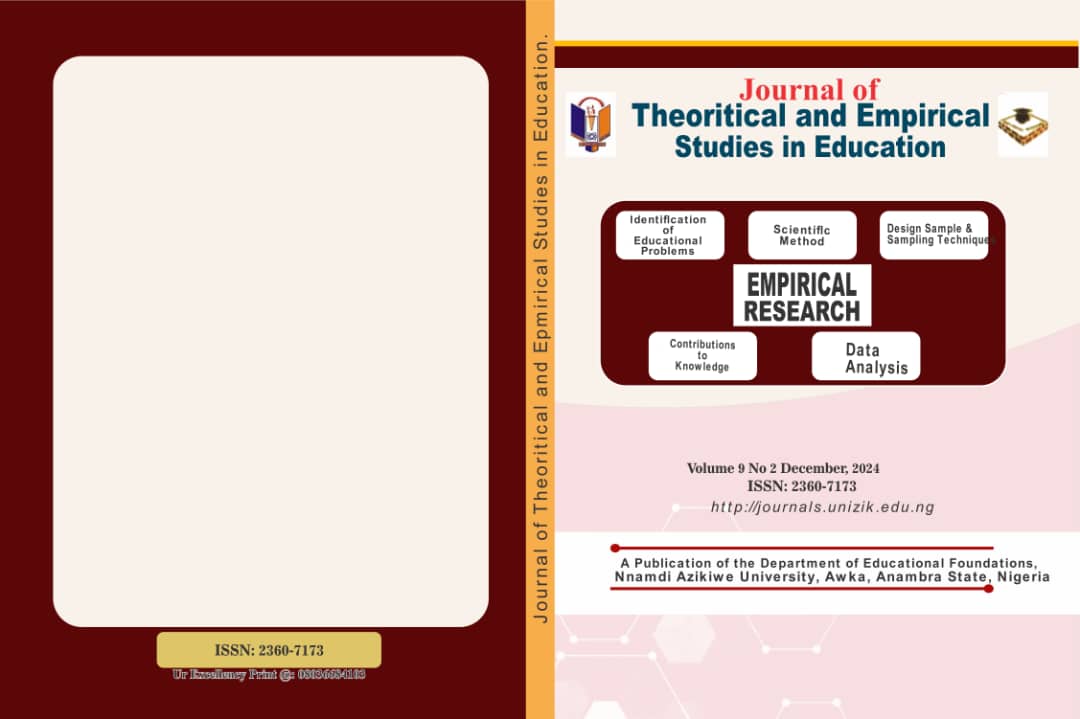EFFECTIVENESS OF COMPUTER-BASED EXAMINATION IN AMBROSE ALLI UNIVERSITY, EKPOMA, EDO STATE
Keywords:
Effectiveness, Computer-based Examination, Impersonation, Accuracy in Students Grading, Examination MalpracticeAbstract
The study examined the effectiveness of computer-based examination in Ambrose Alli University, Ekpoma, Edo State. The study was guided by four research questions. The study employed the descriptive research design of the expo-facto types. The population of the study was made up of all the forty-one thousand, three hundred and ninety-four (41,394) undergraduate students who have registered for 2021/2022 academic session in all the fourteen Faculties in Ambrose Alli University, Ekpoma, Edo State. The 41,394 students presented in the population covers all the students from 200-400 levels which have participated in computer-based examinations in Ambrose Alli University, Ekpoma, Edo state. The simple random technique was used in selecting 7 Faculties in Ambrose Alli University, Ekpoma, Edo State. In this regards, 70 students were randomly selected from each of the 7 sampled faculties. This gave a total sample size of four hundred and ninety (490) students sampled for the study. A questionnaire titled “Effectiveness of Computer-based Examination Questionnaire” (ECBEQ) was used in the study. The data obtained was analyzed using percentages, Mean (X) and Standard Deviation (SD). The study revealed that computer-based examination was not effective in managing impersonation among students, computer-based examination was not effective in managing examination malpractice among students and Computer-based examination was effective in managing the accuracy in students grading. Based on the findings, the study recommended among others that the management of Ambrose Ali University should deploy more technological equipments such as thumb printing identification devices to help curb the problem of impersonation during computer-based examinations




